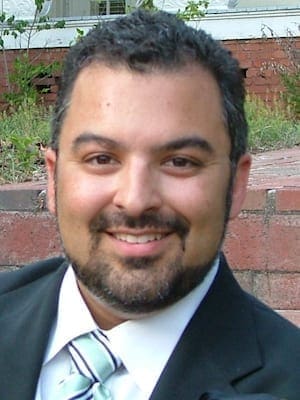Michael Moroz, a high school student and editor of his school newspaper, missed a few days of school in early January because of threats made against his life.
The lethal reaction resulted from an editorial Moroz ran, along with an opposing viewpoint penned by one of his peers, criticizing student protests at the University of Missouri.
Moroz argued that protests hindered much-needed debate related to police brutality and that, in many cases, lethal force is necessary to protect first responders.
The editorial and opposing article ran in the school newspaper with little fanfare. When it hit the Internet and a wider audience, however, things turned ugly.
Comments on the online article thread ranged from cheer to aggression, with one comment even calling for someone to shoot Moroz and “teach him a lesson.”
Although this situation has been used as a case study for political correctness, the real tragedy is the online aggression – also known as Internet “trolling” – that threatened none other than a teenager’s life.
Online aggression is not an isolated moral lapse, but a rampant infestation of sin.
An Internet “troll” is anyone who comments on online articles or blogs with threatening, intimidating or abusive language. It is, and has been considered by many, to be hate speech.
The Internet’s anonymity makes it easy for trolls to abuse others, but it is not harmless sport.
This aggression has led to suicides, soiled reputations and – in some cases –profits, according to Yasmin Green writing for The Daily Beast.
Unfortunately, Christians are neither immune from trolls nor free from becoming trolls themselves.
I became a victim of trolls – some of them people of faith – when I wrote my first article for an environmentalist blog several months ago.
I was reporting on various weather anomalies over the 2015 Christmas break, and its publicity created a stir on social media.
I was called everything from snake-skinned scam artist to vulgar names that had to be deleted.
When the organization for which I wrote reminded people that the website is “Christian” and “family-friendly,” we were called more names. No apologies were offered.
Trolls are so real that they can shape the tone and content of an online debate with detrimental effects.
For that reason, they cannot be ignored. In fact, Christians should protest any trolling speech whenever it is used in person or online and stand on the side of civility and moderation.
This is not political correctness. This is living into the basic values to which Christians are called.
Nor is it censoring disagreements; trolling is more than disagreeing with something – it is attacking the person instead of the very thing for which the person stands.
Here are four positive ways that Christians can respond:
1. Christians can protest Internet trolling by engaging an online discussion with well-reasoned, thoughtful responses. Although it may get lost amid other comments, it will stand out to readers who also take such discussions seriously.
2. Christians can also protest trolls by not engaging in their rhetoric. Most social media analysts agree that trolls want responses – and the more negative the response, the better.
3. Christians can abide by God’s Word by not returning “evil with evil or insult with insult” (1 Peter 3:9). In turning the other cheek, we can obey Christ, who implored those being harassed to rise above the abuse, lest the abuser become the oppressor (Matthew 5:39).
4. Christians can protest trolls by not giving up on expressing their convictions with compassionate persistence. The true goal of most trolls is to shut down or end a discussion of serious matters with which they disagree.
Trolls try to be the loudest voices in the room and drown out the most significant voices that seek truth and clarity. With kindness, we can heap coals upon their schemes and scheming (Proverbs 25:22).
Christians have a part to play in the public sphere, online or otherwise. We are, after all, commissioned to spread the gospel, even if the world refuses to tolerate it or scorn it with the most vehemence it can muster.
 Joe LaGuardia is senior pastor of Trinity Baptist Church in Conyers, Georgia. He is the author of “Awe and Trembling: Reflections for the Christian Journey,” a book of articles and homilies. A version of this article first appeared on his blog, Baptist Spirituality, and is used with permission.
Joe LaGuardia is senior pastor of Trinity Baptist Church in Conyers, Georgia. He is the author of “Awe and Trembling: Reflections for the Christian Journey,” a book of articles and homilies. A version of this article first appeared on his blog, Baptist Spirituality, and is used with permission.
Joe LaGuardia is senior pastor of First Baptist Church in Vero Beach, Florida.

